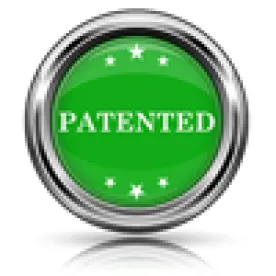Takeaway: There must be some articulated reasoning with some rational underpinning to support each proposed legal conclusion of obviousness.
In its Decision, the Board declined to institute inter partes review of any of challenged claims 7-12 or 19-24 of the ’944 patent. Specifically, the Board held that Petitioner had not shown a reasonable likelihood that it would succeed in proving that any one of claims 7-12 or 19-24 is unpatentable under the various grounds set forth in the Petition.
The ’944 patent relates to “systems and methods for reducing the likelihood of collisions between data packets in wireless communications channels.” The Board began by interpreting five instances of claim language from among the challenged claims. In each instance, the Board agreed with Patent Owner’s position, and thus did not adopt any of Petitioner’s proposed constructions.
The Board then addressed the unpatentability grounds that had been proposed by Petitioner. These included: anticipation of claims 7, 8, 10, 19, 22, and 23 under 35 U.S.C. § 102(e) by Sherman; obviousness of claims 9, 11, 12, 20, 21, and 24 under 35 U.S.C. § 103(a) in view of Sherman and APA; obviousness of claims 7, 8, 10–12, 19, 20, and 22–24 under 35 U.S.C. § 103(a) in view of Chen and Choi; obviousness of claims 9 and 21 under 35 U.S.C. § 103(a) in view of Chen, Choi, and APA; obviousness of claims 7, 8, 10–12, 19, 20, and 22–24 under 35 U.S.C. § 103(a) in view of Sugar and Choi; and obviousness of claims 9 and 21 under 35 U.S.C. § 103(a) in view of Sugar, Choi, and APA.
As for the asserted grounds based on Sherman, which all involve the issue of whether Sherman qualifies as prior art under 35 U.S.C. § 102(e), the Board noted that the January 15, 2002 filing date of Sherman is earlier than the November 15, 2002 filing date of the challenged ’944 patent. The challenged ’944 patent, in turn, claimed priority to a provisional application having a filing date of January 12, 2002, which preceded the filing date of Sherman by three days. The Board found that Patent Owner had adequately demonstrated that the challenged ’944 patent claims were entitled to the benefit of the January 12, 2002 provisional application filing date. While Sherman claimed the benefit of several earlier provisional applications, the earliest filing date of which was January 16, 2001, the Board held that “Petitioner [had] not provided the necessary proof that Sherman is entitled to that earlier filing date.” As stated by the Board, “Petitioner [had] not even provided copies of the provisional applications for the record.” The Board then went on to conclude that it agreed “with Patent Owner that Petitioner has failed to demonstrate adequately that Sherman qualifies as prior art. Petitioner was aware that the ’944 patent claimed the benefit of the January 12, 2002 provisional filing date, but did not provide the Board with any evidence that Sherman’s effective filing date was earlier.”
Regarding the other asserted grounds, the Board was “persuaded by Patent Owner’s argument that Petitioner has not provided a sufficient rationale for combining Chen and Choi.” In doing so, the Board gave Petitioner’s expert Professor Ding’s testimony little weight, finding that rather than adequately explaining why the skilled artisan “would have applied Choi’s self-addressed CTS frame in Chen’s system when the purpose of the systems is so different,” Professor Ding merely provided “conclusory testimony.” The Board found that the same deficiencies were present with respect to the proposed combination of Chen and Choi, as well. Thus, the Board concluded that it was not persuaded that “Petitioner [had] provided sufficient record support for why person of ordinary skill would have made such a combination.”
Marvell Semiconductor, Inc. v. Intellectual Ventures I LLC, IPR2014-00547
Paper 17: Decision Denying Institution of Inter Partes Review
Dated: December 3, 2014
Patent: 6,977,944 B2
Before: Thomas L. Giannetti, James A. Tartal, and Patrick M. Boucher
Written by: Giannetti
Related Proceedings: Intellectual Ventures I LLC v. Canon Inc., 1:13-cv-473 (D. Del.); Intellectual Ventures I LLC v. Ricoh Co. Ltd., 1:13-cv-474 (D. Del.); andIntellectual Ventures I LLC v. AT&T Mobility LLC., 1:12-cv-00193 (D. Del.)



 />i
/>i

